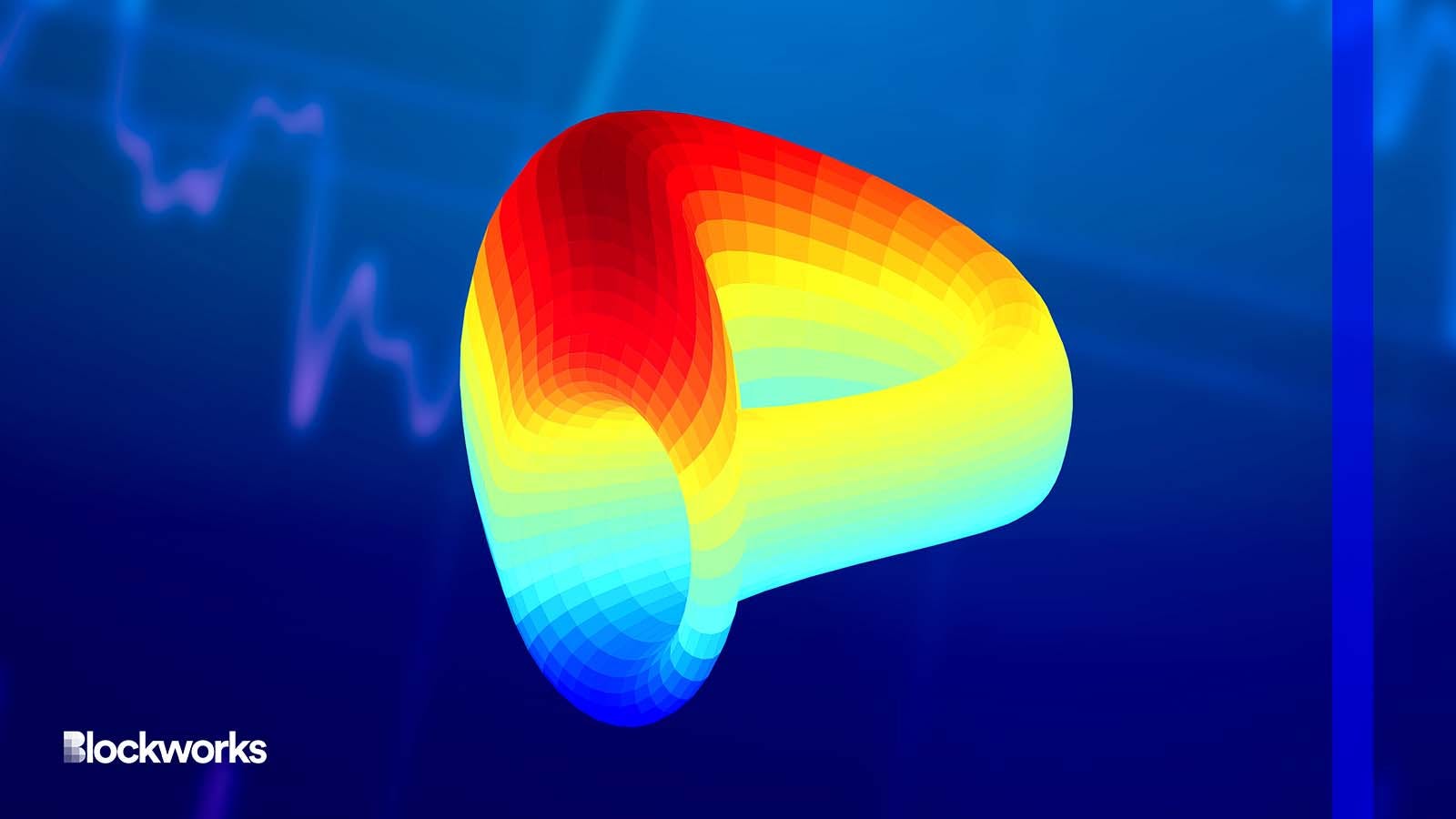Curve’s Egorov turns to notable counterparties to bail out his DeFi positions
To shore up his positions and prevent a possible liquidation cascade, Curve founder Michael Egorov has turned to unlikely sources of liquidity

Ivan Babydov/Shutterstock modified by Blockworks
To save his DeFi loan positions and prevent a possible liquidation cascade, Curve founder Michael Egorov has turned to some notable sources of liquidity.
Following a series of exploits on multiple Curve Finance decentralized exchange pools on Sunday, the price of Curve’s CRV governance and rewards token has plummeted by as much as 30%, falling from $0.73 on Sunday to $0.503 Monday night before recovering to $0.63 on Tuesday, per Coinmarketcap data.
This in turn has placed significant pressure on some of the most closely-watched positions in DeFi. Egorov, a prolific DeFi power user, had upwards of $110 million in outstanding loans to various DeFi protocols that largely used CRV as collateral. Multiple positions were at risk of liquidation at roughly $0.35 per CRV token.
Liquidations can often lead to tremendous sell pressure. In the case of Egorov’s CRV position, the liquidations could result in bad debt for multiple projects due to the dearth of CRV liquidity on Ethereum. Curve’s CRV/ETH pool was among those hacked on Sunday and previously played a key role in the token’s trading depth.
Aave’s Safety Module — effectively an insurance backstop for the protocol — uses a $300 million AAVE/ETH Balancer pool as well as staked AAVE as the source of funds in the event of a shortfall event, meaning that the protocol would sell AAVE tokens to cover losses.
Ultimately, this could lead to precipitous market declines in both AAVE and CRV if Egorov were to be liquidated, which in turn could lead to further liquidations and possible bad debt across platforms that use either token as collateral.
As of Tuesday morning, however, on-chain evidence points to Egorov executing a series of over-the-counter (OTC) transactions with perhaps unlikely parties. In doing so, Egorov appears to have scrounged together a cache of stablecoins to pay down portions of his debt and secure his positions — at least for now.
Meet the counterparties
According to Nansen analyst Sandra Leow, over a period of hours, Egorov sold 54.5 million CRV tokens to nearly a dozen OTC buyers at a rate of $0.40 per token — well below market price.
In many ways the buyers resemble a who’s-who of controversial crypto personalities.
Major buyers include Tron founder Justin Sun, who was recently sued by the US Securities and Exchange Commission; tech entrepreneur Jeffrey Huang, who was accused of embezzling 22,000 ETH; and DWF Labs, a company critics say blurs the lines between investing and market making.
Convicted felon Michael Patryn, working under the moniker 0xSifu, implied on Twitter that he was also invited to participate as well, and that the tokens have a six-month lockup. The Block additionally reports that the deal comes with an option for buyers to sell if the price of CRV exceeds $0.80. It is unclear if these terms are enforced contractually, with a smart contract, or simply through handshake agreements.
In a tweet, prolific market maker and OTC desk Wintermute founder Evgeny Gaevoy said that they had not onboarded Egorov, apparently in an effort to distance his firm from the list of “questionable” buyers.
Nonetheless, even with the hodgepodge collection of counterparties, Egorov has managed to pull together enough to pay down over $17 million in stablecoin loans over the past 12 hours, significantly improving the health of his positions across multiple protocols.
Egorov declined to comment when reached by Blockworks, citing the need to reconcile internal bookkeeping.
Updated Aug. 16, 2023 at 5:57 pm ET: Corrected the amount held in Aave’s Safety module.
Get the news in your inbox. Explore Blockworks newsletters:
- The Breakdown: Decoding crypto and the markets. Daily.
- 0xResearch: Alpha in your inbox. Think like an analyst.






